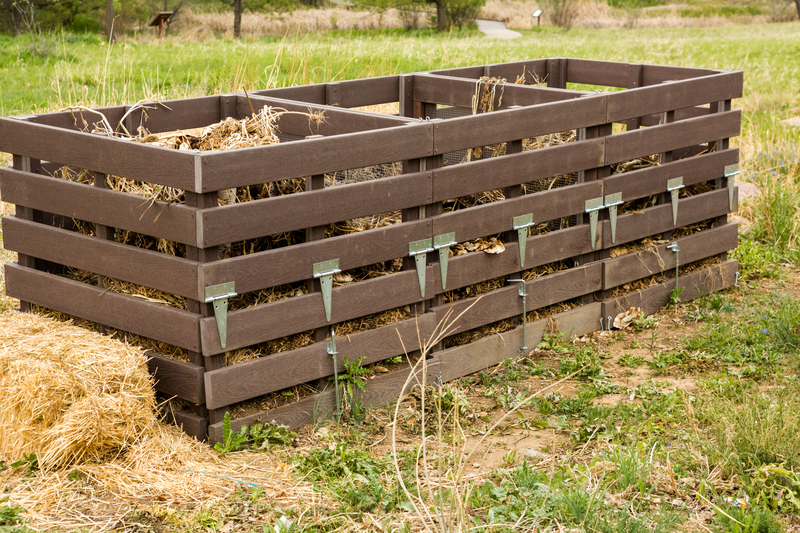Smart Disposal: Keeping Bulky Waste Costs Low
Bulky waste--from old furniture and worn-out appliances to construction debris and garden trimmings--poses a significant challenge for homeowners, businesses, and municipalities alike. While the need to dispose of outsized, heavy, or voluminous items is unavoidable, bulky waste disposal does not have to break the bank. Employing smart strategies can help you manage waste efficiently and keep costs low, all while staying eco-friendly.
Understanding Bulky Waste and Its Costly Challenges
Bulky items are those too large or heavy to be collected through routine waste collection services. These can include:
- Furniture such as sofas, mattresses, and wardrobes
- Large household appliances like fridges, washing machines, and ovens
- Renovation debris--tiles, windows, bathroom suites
- Outdoor items such as garden furniture, tree branches, and play equipment
The primary issues with bulky item removal are high disposal fees, logistical constraints, and environmental concerns. Municipal pickup services may charge hefty fees or have infrequent schedules, while private haulers often come with convenience premiums. So, what are the smart disposal options for individuals and businesses looking to keep costs low while responsibly managing bulky waste?

Top Strategies for Low-Cost Bulky Waste Disposal
1. Plan Ahead and Minimize Waste Generation
- Reduce before disposing: Ask whether any item can be repaired, repurposed, or donated before considering disposal. Preventing waste is always the most cost-effective solution.
- Disassemble Larger Items: Breaking down furniture or equipment into smaller components can often lower collection charges or allow for do-it-yourself transport.
2. Maximize Free and Local Disposal Options
- Community Collection Days: Many towns and cities organize free or discounted bulky waste collection events a few times per year. Keep informed about local schedules to take advantage.
- Recycling Centers and Drop-off Points: Local recycling centers often accept certain bulky items for free or a nominal fee, much less than commercial hauling costs.
- Reuse Networks and Charities: If your bulky waste is still functional, charities and reuse organizations may be willing to take it, saving disposal costs and benefiting the community.
3. Compare Professional Bulky Waste Removal Services
- Shop Around for Estimates: Prices can widely vary among haulers. Obtain quotes from several disposal companies and local junk removers.
- Bulk Discounts: Bundling multiple items or coordinating collections with neighbors or other businesses nearby can secure lower per-item costs.
- Transparent Pricing: Choose providers who provide upfront, itemized pricing to avoid hidden fees and surprise costs.
4. Consider Self-Disposal
- Rental Vehicles: Renting a van or trailer to transport your own bulky waste to a disposal facility is often significantly cheaper than booking a collection service.
- Group Transport: Share transportation with neighbors needing to dispose of bulky items to split vehicle and fuel costs.
Smart Decision-Making: Bulky Waste Cost-Saving Examples
Reusing and Donating Bulky Items
Many items regarded as waste may still have value. For instance, donating gently used furniture to a charity shop or offering working appliances on freecycle websites helps reduce disposal volumes and saves on collection fees. Some organizations even offer a free removal service for reusable goods.
DIY Dismantling for Cheaper Transport
Breaking down large waste into manageable pieces not only reduces the logistical challenge but can also cut costs substantially--especially where disposals are charged by volume or weight. Old furniture, for example, can often be unscrewed, separated, or flattened, fitting neatly into smaller vehicles or allowing for shared loads.
Utilizing Scheduled Council Collections
In many municipalities, scheduled bulky waste collections are our most cost-efficient route, often free or heavily subsidized. Confirm materials accepted, as restrictions may apply to electronics, hazardous waste, or renovation debris. Booking early is often key since time slots can fill quickly.
Reducing Bulky Waste Collection Fees: Essential Tips
- Sort Your Items--Municipal haulers may offer reduced fees for items sorted by material type (metal, wood, textiles). Sorting can also maximize recycling potential.
- Stay Within Size and Weight Limits--Most disposal services set maximum item or load sizes. Staying within these can prevent surcharge fees.
- Utilize Free Take-Back Programs--Retailers sometimes offer free removal when delivering new appliances or furniture. Check before your next purchase.
- Partner with Local Handymen--Local handypersons sometimes offer furniture or garden removal as part of their services at a lower cost than specialized hauling firms.
Sustainable Bulky Waste Disposal: Saving Both Money and the Environment
Economic incentives for responsible bulky waste disposal are growing. Recycling items like metals and electronics can result in rebates, while improper landfill disposal is facing increasing surcharges. Here's how you can keep disposal both affordable and environmentally sound:
- Sell or Swap: Use online marketplaces (e.g., Craigslist, Facebook Marketplace, Gumtree) to sell or trade unwanted bulky items.
- Upcycle: Transform old furniture or household objects into something new. A simple sanding and repainting project can give an old wardrobe a new lease on life and keep it out of the waste stream.
- Work With Local Scrap Collectors: Metals, especially, are valuable--scrap dealers may remove these for free or even pay a small fee.
- Composting: For green waste (like branches or logs), local composting facilities might accept your bulk garden waste at much lower cost than landfill.
Up-to-Date Trends in Bulky Waste Management
In urban centers, smart disposal is benefiting from technology, enhanced recycling incentives, and community-driven solutions. Modern trends for keeping costs low include:
- Digital Booking Platforms: Online booking for bulky collections helps you compare prices and availability instantly.
- Smart Routing: Some hauling firms optimize routes to pool collections in the same area, reducing costs and emissions.
- Pay-As-You-Throw Programs: These reward residents and businesses that minimize waste, offering lower disposal fees for smaller volumes.
- Community Sharing Apps: Apps connecting neighbors to share skips or bulk collection slots, lowering average costs for all involved.
Frequently Asked Questions: Bulky Waste Disposal and Cost Reduction
What qualifies as 'bulky waste' and why is it expensive to dispose of?
Bulky waste generally covers any unwanted item that cannot fit into a standard bin (typically over 200 liters, height or weight limits apply). Due to their size, these items require additional handling, transport logistics, and specialized disposal processes, explaining the higher costs.
How much does bulky waste collection cost on average?
Costs vary widely--municipal collections may be free or under $50 per load, while private haulage can run $75-$200 per major item, with extra fees possible for overweight or hard-to-move objects. Prices can be drastically reduced by leveraging community pickups and reusing or donating goods.
Are there items that even paid bulky waste services won't collect?
Yes: hazardous waste (e.g., paint, chemicals, asbestos), automotive parts, and some electronics are typically excluded from routine bulky pickups. Ask your local authority for dedicated disposal options for these materials, which are usually offered quarterly or annually.

A Step-by-Step Guide to Smart, Low-Cost Bulky Waste Disposal
- 1. Inventory Your Waste: List all items for disposal, assessing if any can be donated, sold, or recycled.
- 2. Check Local Free or Subsidized Services: Consult your city's or county's website for scheduled pickups or recycling drop-off events.
- 3. Compare Quotes: For what remains, compare at least three bulky waste removal bids, and negotiate where possible.
- 4. Prep Items for Pickup: Disassemble large pieces, remove hazardous materials, and batch same-material items together.
- 5. Confirm Collection Rules: Ensure all items meet your hauler's or city's size, weight, and type restrictions.
Conclusion: Smart Disposal, Greater Savings
Smart bulky waste disposal is about more than just cost savings--it's an efficient, responsible way to keep your home or business clutter-free while reducing environmental impact. With a mix of advance planning, community resources, creative reuse, and clever price comparisons, you can keep bulky waste disposal costs to a minimum. The next time you face the challenge of getting rid of large, heavy, or awkward items, remember: smart disposal not only saves you money, but it also contributes to a cleaner, greener community.
Ready to take control of your bulky waste disposal? Start planning today and discover just how affordable, convenient, and eco-friendly smart disposal can be!
```